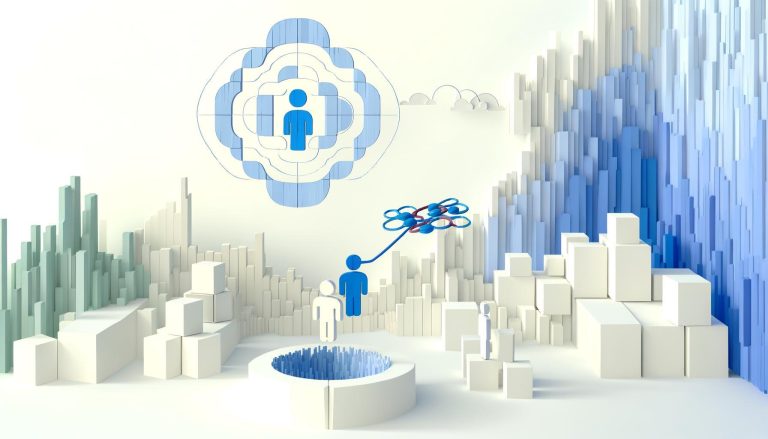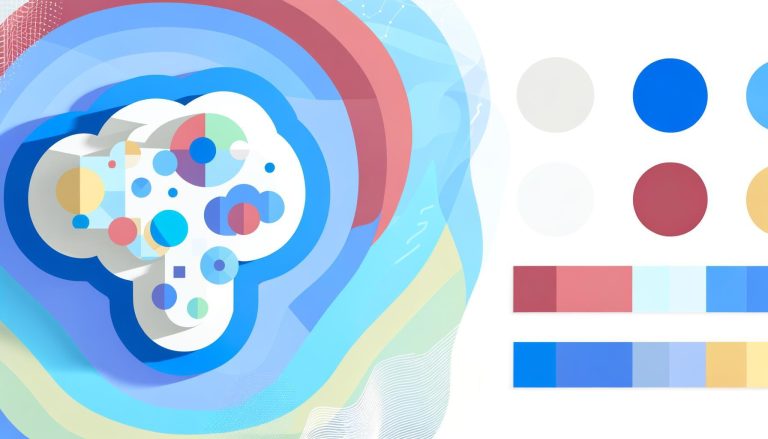Chronic fatigue is a condition that saps energy, impairs mental well-being, and disrupts daily life. As this condition affects millions around the globe, finding effective strategies for managing chronic fatigue is crucial. Artificial Intelligence (AI) presents several promising solutions, leveraging technology to help individuals conserve energy and maintain mental health. This article explores AI strategies that can aid in managing chronic fatigue and enhancing overall well-being.
Introduction to Chronic Fatigue and AI
Chronic fatigue syndrome (CFS) is characterized by persistent, overwhelming tiredness that doesn’t improve with rest. It impacts every facet of a person’s life, making even simple tasks seem insurmountable. Fortunately, advancements in AI offer new avenues for individuals to manage this condition effectively.
AI tools and applications can provide personalized insights, track symptoms, and offer practical advice for energy conservation. By understanding the role of AI in managing chronic fatigue, sufferers can benefit from tailored solutions designed to improve their quality of life.
AI-Powered Tracking and Monitoring
Symptom Tracking
AI-powered apps, such as Zenora, enable individuals to log symptoms, moods, and activities daily. By tracking these variables, users can identify patterns and triggers that exacerbate their chronic fatigue.
- Identify exacerbating factors by tracking daily activities and symptoms
- Generate comprehensive reports to share with healthcare professionals
- Receive reminders for taking breaks and engaging in relaxation techniques
Predictive Analysis
Advanced AI algorithms can analyze an individual’s data to predict fatigue episodes. This proactive approach helps users prepare for and mitigate these episodes more effectively.
- Receive alerts about potential fatigue episodes based on past data
- Plan activities during high-energy periods and rest during predicted low-energy times
Energy Conservation with AI
Personalized Recommendations
AI can offer tailored advice based on individual patterns and preferences. These are some ways AI ensures energy conservation:
- Suggesting optimal break times and relaxation techniques
- Recommending low-energy activities during fatigued periods
- Providing dietary and hydration advice pertinent to energy levels
Automation and Smart Assistance
Home automation systems, powered by AI, can handle routine tasks, minimizing energy expenditure:
- Smart home devices can control lighting, temperature, and other settings
- AI assistants can manage reminders, appointments, and schedules
- Automated medication dispensers ensure timely intake, reducing cognitive load
Mood and Stress Management
Stress contributes significantly to fatigue. AI-driven mental health apps utilize techniques like Cognitive Behavioral Therapy (CBT) to manage stress and improve mood:
- Guided meditations and mindfulness exercises tailored to individual needs
- Virtual therapy sessions and support groups
- Educational content related to stress management and relaxation
Benefits and Practical Tips
Benefits of AI in Managing Chronic Fatigue
- Personalized Care: AI precisely tailors recommendations based on individual patterns.
- Proactive Management: Predictive features help in anticipating and mitigating fatigue episodes.
- Convenience: Automation of tasks and reminders minimizes energy expenditure on routine activities.
- Enhanced Communication: Comprehensive reports facilitate better communication with healthcare providers.
Practical Tips for Using AI Tools
To maximize the benefits of AI in managing chronic fatigue, consider these practical tips:
- Consistent Tracking: Regularly log symptoms, activities, and moods to provide accurate data for AI analysis.
- Engage with AI Recommendations: Implement the personalized advice provided by AI tools for optimal energy conservation.
- Utilize Smart Home Devices: Integrate AI-powered devices into your home environment to automate routine tasks.
- Explore Mental Health Features: Engage in guided meditations, mindfulness exercises, and virtual therapy sessions.
Future of AI in Managing Chronic Fatigue
Continuous Learning and Adaptation
AI systems continually learn and adapt based on user data, improving their recommendations and insights over time. This ongoing learning process ensures that the AI tools remain effective and relevant to the user’s evolving needs.
Integration with Wearable Technology
The future of AI in managing chronic fatigue includes seamless integration with wearable devices that monitor vital signs and activity levels. Data from wearables can enhance AI’s predictive capabilities, leading to even more accurate and timely recommendations.
Wearable technology can provide real-time feedback on physical activity, sleep quality, and heart rate variability, all of which are essential metrics for managing chronic fatigue. This integration allows for a more comprehensive approach to energy conservation and mental well-being.
Enhanced User Experience
As AI technology progresses, user interfaces will become more intuitive and user-friendly. Enhanced voice recognition, natural language processing, and interactive interfaces will improve the accessibility and usability of AI tools, making them more effective for users with chronic fatigue.
Collaborative Healthcare Approach
The integration of AI tools within the broader healthcare ecosystem fosters a collaborative approach to managing chronic fatigue. Healthcare providers can access comprehensive data and insights from AI systems, enabling them to offer more personalized and effective treatments.
By working together, AI and healthcare professionals can create a holistic and coordinated care plan that addresses both the physical and mental aspects of chronic fatigue syndrome.
Conclusion
AI strategies offer promising solutions for managing chronic fatigue by leveraging technology to conserve energy and enhance mental well-being. From symptom tracking and predictive analysis to personalized recommendations and smart home automation, AI provides comprehensive support tailored to individual needs.
As technology continues to evolve, the integration of AI with wearable devices and the broader healthcare ecosystem will further improve the management of chronic fatigue. By engaging with AI tools and incorporating their recommendations, individuals can take proactive steps towards better energy conservation and overall well-being.
For those seeking a user-friendly platform to track their symptoms, moods, and activities while receiving personalized advice, the Zenora App offers a comprehensive solution. Its features include mood and habit tracking, goal-setting, and detailed reports, making it an invaluable tool for anyone striving to manage chronic fatigue more effectively.





